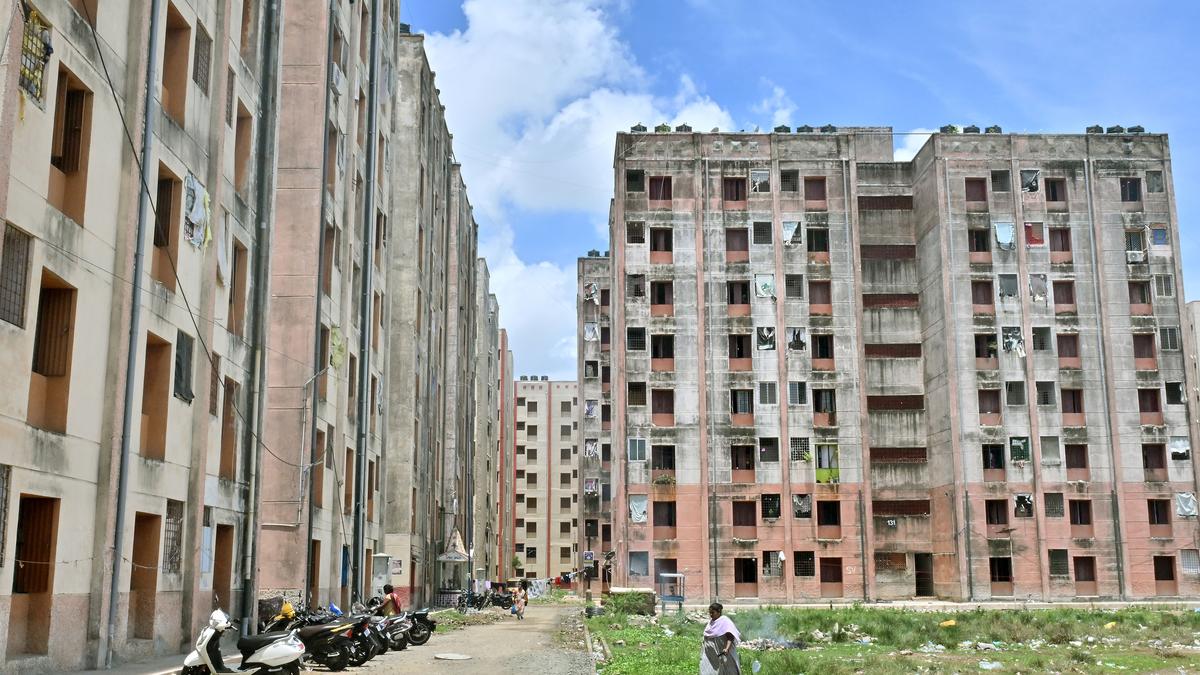A view of Tamil Nadu Urban Habitat Development Board tenements in Perumbakkam in Chennai.
| Photo Credit: File Photo
Residents and non-governmental organisations (NGOs) have raised concerns over the crumbling infrastructure and poorly illuminated streets at the resettlement sites of the Tamil Nadu Urban Habitat Development Board (TNUHDB) in Perumbakkam, Kannagi Nagar, Ezhil Nagar, and Semmencherry in Chennai.
A report by the Information and Resource Centre for the Deprived Urban Communities (IRCDUC), an NGO working for the urban poor, highlighted several infrastructural and safety issues faced by the residents of these resettlement areas.
In Ezhil Nagar, the Integrated Child Development Scheme (ICDS) centres have been functioning in the tenements constructed for residential purposes. In some areas, two such centres are functioning in a place allotted for only one centre. The situation is similar in the resettlement tenements at Old Perumbakkam as well, the report noted.
The report also flagged the poor quality of buildings in the resettlement sites. When contacted by The Hindu, several residents echoed the problems already mentioned in the report. “The problems become worse particularly during rain and we [residents who live on the top floor] bear the brunt. The plaster on the walls and ceilings crumbling due to dampening is a threat to our safety. We have been living in fear. To avert any untoward incidents, our family had spent some money to carry out patch works on the roof and the walls,” said R. Radha (name changed), a resident of the TNUHDB tenement at Perumbakkam.
Poorly illuminated streets and pothole-ridden roads pose a serious threat, particularly during night. Miscreants take refuge in these hotspots to indulge in unlawful activities, the residents pointed out.
Vanessa Peter, founder, IRCDUC, said that, in 2011, the State government had formed a high-level committee, with the Chief Secretary as the chairperson and officials from various departments as members, to address issues such as the lack of basic infrastructure facilities like water supply, sewerage disposal, electricity, streetlights, roads, and social infrastructure like ICDS centres, educational institutions, and other services. The committee conducted a few meetings, but soon became defunct. She said the high-level committee should be reconstituted to ensure that a robust system is in place for inter-departmental coordination to address the infrastructure-related and other issues plaguing the resettlement sites.
The IRCDUC report further recommended the State government to convene the District Habitat Committee meeting once in three months, with a special agenda to address issues in resettlement sites.

